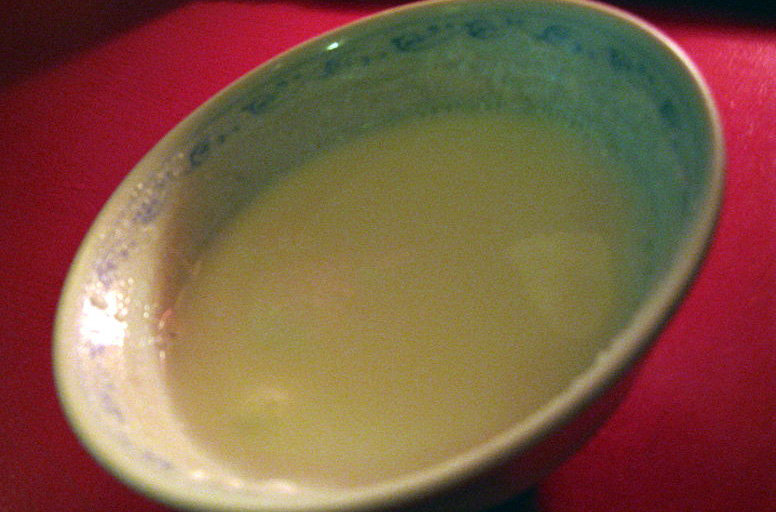 "That what makes the study of microorganisms extremely important in efforts to improve food security", says Tsetseg Baljinova, professor at the Institute of Biology at the Mongolian Academy of Sciences in Ulaanbaatar, Mongolia. Tsetseg spoke at the TWAS 22nd General Meeting in Trieste, Italy.
"That what makes the study of microorganisms extremely important in efforts to improve food security", says Tsetseg Baljinova, professor at the Institute of Biology at the Mongolian Academy of Sciences in Ulaanbaatar, Mongolia. Tsetseg spoke at the TWAS 22nd General Meeting in Trieste, Italy.
"Food security is not as critical an issue in Mongolia as it is in many developing countries", Tsetseg says. "Dairy and meat consumption is high compared to neighbouring countries and malnutrition is rare."
Yet, poor families, especially in the nation's capitol, Ulaanbaatar, and other cities, often do not have sufficient incomes to be food secure. "Micro-nutrient deficiencies persist", she says, "due to poor diets and the limited purchasing power of urban families."
"Agriculture, as well as forestry and fisheries, are sustained by basic microbial activity", she adds. Microorganisms play a key role in food production and preservation, in the management of pests and in increasing soil fertility. They are also a critical resource for pharmaceutical and biotechnology industries and a significant element in the treatment of plant and animal waste.
Economic forecasts indicate that the value of microorganisms could nearly double from more than USD150 billion today to more than USD259 billion by 2016.
Despite their importance and value, Tsetseg notes scientists have yet to extensively study microorganisms. In fact, researchers estimate that, to date, only 0.1% to 1.0% of microorganisms wordwide have been identified.
Tsetseg says that, in Mongolia, increased knowledge of microorganisms could help boost agricultural yields and reduce food losses during transport and distribution.
For example, she says Mongolia is losing its topsoil at a significant rate. Farmers, as a result, now use thousands of tons of fertilizers to maintain the soil's health. Scientific interventions to retain and increase the number of microorganisms in the soil could help keep the soil healthy without relying on an excessive use of chemicals. Similarly, microorganisms could help curb the levels of pesticides used to protect crops and forests from insects and disease.
Tsetseg points to the important role that microorganisms could play in increasing potato yields in Mongolia. Potatoes are the second most important food crop in Mongolia; only wheat has a more prominent place in the diets of Mongolians.
Each year, scab destroys 10% to 35% of the potato harvest. The bacteria Streptomyces have been identified as the cause of the disease. If biological control agents could be found to combat Streptomyces, scab could be substantially arrested and yields would increase substantially. "This has become a focal point of research at my laboratory", says Tsetseg.
Yet for Tsetseg, the study of microorganisms is not the preserve of modern science. "Traditional knowledge", she maintains, "could add a great deal to our understanding of how microorganisms can serve society."
She cites, for example, how societies have long used microorganisms to process milk into other dairy products and how they have relied on lactic acid bacteria and yeast to produce alcoholic and non-alcoholic beverages.
"This has certainly been the case in Mongolia", she notes, "where meat and dairy products have long been processed with the help of microorganisms."
Melding traditional knowledge of microorganisms with modern scientific findings and laboratory techniques could yield important insights not only for food processing but also for boosting agricultural production.
"The Convention on Biodiversity", Tsetseg observes, "was the first international treaty to recognize the value of traditional knowledge and practices." She goes on to say that the Convention acknowledged the importance of biodiversity for medicine and the conservation and sustainable use of flora and fauna. Provisions focusing on food call for drawing upon traditional knowledge of husbandry to devise effective strategies for food security in balance with preserving biodiversity. She urges member states to broaden their concerns for these twin challenges by including microorganisms.
"In short," Tsetseg says, "microbial diversity and their genetic resources offer an invaluable resource for improving global agricultural production and food security with benefits that would resonate across the developing world."
For that reason alone, research into microorganisms should gain a prominent role in efforts to promote sustainable growth and greater social and economic well-being.

